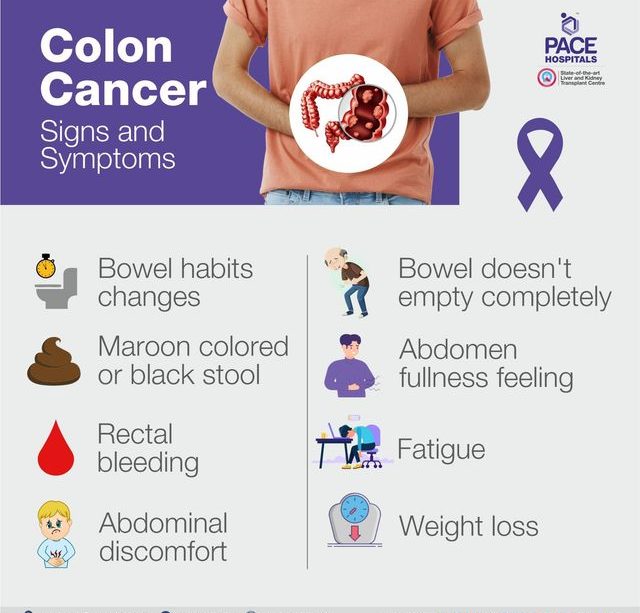Key Symptoms of Colon Cancer You Should Know

Introduction to Colon Cancer Symptoms
Colon cancer, also known as colorectal cancer, remains a significant health concern worldwide. According to the World Health Organization, it is the third most common type of cancer and a leading cause of cancer-related deaths. Early detection plays a crucial role in improving survival rates, making awareness of the symptoms essential for individuals, especially those aged 50 and above or those with a family history of the disease.
Main Symptoms to Watch For
1. Changes in Bowel Habits: One of the most common symptoms of colon cancer is a noticeable change in bowel movements. This could manifest as chronic constipation, diarrhoea, or a change in the consistency of stool that lasts for more than a few weeks.
2. Blood in Stool: The presence of bright red or dark blood in the stool can indicate a problem in the colon or rectum, which may include colon cancer. This symptom should always be reported to a healthcare provider promptly.
3. Abdominal Discomfort: Persistent abdominal pain, cramping, or discomfort can also be a sign of colon cancer. If such pain occurs alongside other gastrointestinal issues, it’s crucial to seek medical advice.
4. Unexplained Weight Loss: Losing weight without trying can be a significant warning sign of various cancers, including colon cancer. If individuals experience unexplained weight loss alongside other symptoms, it is recommended to consult a healthcare professional.
5. Fatigue and Weakness: Chronic fatigue and weakness may also point to colon cancer, especially if accompanied by the other symptoms listed. These feelings can result from the body fighting cancer and should not be ignored.
Conclusion and Importance of Awareness
Being aware of the symptoms of colon cancer can significantly impact early detection and treatment effectiveness. It is crucial for individuals to monitor their health and report any concerning symptoms to their healthcare providers. Moreover, preventative measures such as regular screenings, especially for those with a higher risk, can help detect changes in the colon before cancer develops. With increasing public awareness, we can promote early detection and ultimately improve outcomes for colon cancer patients.









